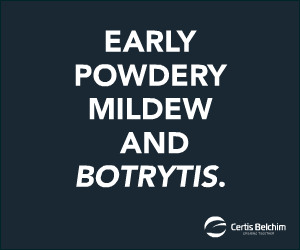A new molasses bait spray being developed in a collaboration between NIAB and Microbiotech will lure Spotted-Wing Drosophila, an invasive fruit fly, to its death before it has a chance to lay its eggs on fruit crops. The new product is not attractive to beneficial insects and requires only a tiny amount of insecticide to control one of UK horticulture’s biggest threats.
Prof Ralph Noble, CEO and co-founder of Microbiotech, presented at the REAP 2021 Start-Up Showcase. He explains that since Spotted-Wing Drosophila entered the UK in 2012, it has become the biggest pest of fruit crops. The female lays its eggs in the developing fruit of cherries, raspberries and strawberries and destroys the crop before it’s ready for harvest.
Ralph says: “Current insecticides need to be sprayed on every surface of the plant to control this invasive pest. Instead, working with NIAB at East Malling, we have developed a mechanism that delivers the insecticide in a droplet of molasses, requiring application to only some of the leaves. The fly is attracted to the bait and consumes the insecticide.
“In total, this reduces the requirement for the insecticide by 96% as the active ingredient is delivered inside the insect, making it more effective. In addition, beneficial insects, such as bees, are not attracted by the bait, so it is highly selective.
“The additive we’re developing is a by-product of the sugar industry, and as a result its cost is low. By also reducing the volume of insecticide required it has the potential to dramatically reduce overall spray costs for growers.
“The amount of time required to apply a bait spray is about 10% of the time required to apply a standard spray, because you don’t need to be covering the entire crop. You also don’t have to return to fill up the tank so often because you’re applying 40L per hectare rather than 500L.”
Microbiotech, based in the new NIAB Innovation Hub, provides a range of contract research services and the company has been working with NIAB and early-stage companies such as AgriGrub to provide proof-of-concept studies for a number of innovations. This includes the development of a slow-release nitrogen fertiliser from frass, a by-product of soldier flies, that boosts growth and prevents disease in roses.
Picture caption: Prof Ralph Noble.














